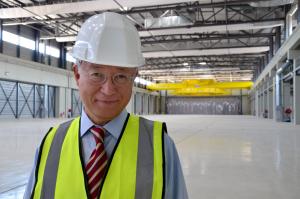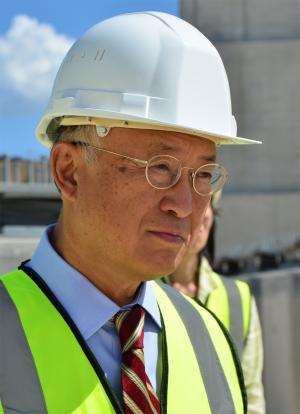What is your perception of fusion energy and ITER?
Nuclear fusion holds the promise of an inexhaustible, clean and safe source of energy—one of the dreams of humankind. If this dream can be realized, it will have dramatic implications for the future on many levels, from economic growth to climate change and fighting poverty. However, fusion is technically very difficult, and many key problems, in material science for example, are still to be solved.
The ITER Project, with Member states representing half of the world's population, is a historic milestone on the way to fusion energy. It is a huge challenge, both from an engineering and a management point of view. This challenge can only be met through concerted international efforts.
My hope is that ITER will open the door to fusion power and provide the ITER Members with the technology to design and build the first generation of fusion power stations. The challenge is huge, but I have faith in the ingenuity of human beings and the ability of our scientists and engineers to overcome even the most daunting technological hurdles.
What is the IAEA's role in facilitating fusion research?
The IAEA played the role of godparent to the ITER Project as it grew from an idea floated at the 1985 Summit in Geneva between US President Reagan and Soviet General Secretary Gorbachev into an international organization in 2006.
Today, the IAEA serves the worldwide fusion and plasma physics community by publishing the leading scientific journal and organizing the largest biennial conference in the field. We also directly support research through Coordinated Research Programmes and the provision of nuclear data. ITER has a special place in all of these activities and we regularly organize workshops and physics schools together.
For the more than 120 IAEA Member States that are not part of the ITER Organization, the IAEA performs an important bridging function, disseminating knowledge from ITER to the wider community and providing a platform for exchange between ITER and the rest of the world.
What is your perception of an "ideal world" as far as energy issues are concerned?
I would not presume to tell countries what is the ideal energy mix for them as their individual circumstances vary so widely.
However, I believe that access to energy is essential for all countries for their development and for the welfare of their people.
We should make the best use we can of all the sources of energy at our disposal, in a clean, efficient and sustainable way. All sources of energy have their advantages and disadvantages, and they need to be looked at from a wider perspective. Clearly, fossil fuels will play a central role for many decades to come. Equally, renewables will play an important role, and I welcome efforts to improve their effectiveness. And, as I mentioned earlier, I see the use of nuclear energy continuing to grow in the coming decades.



